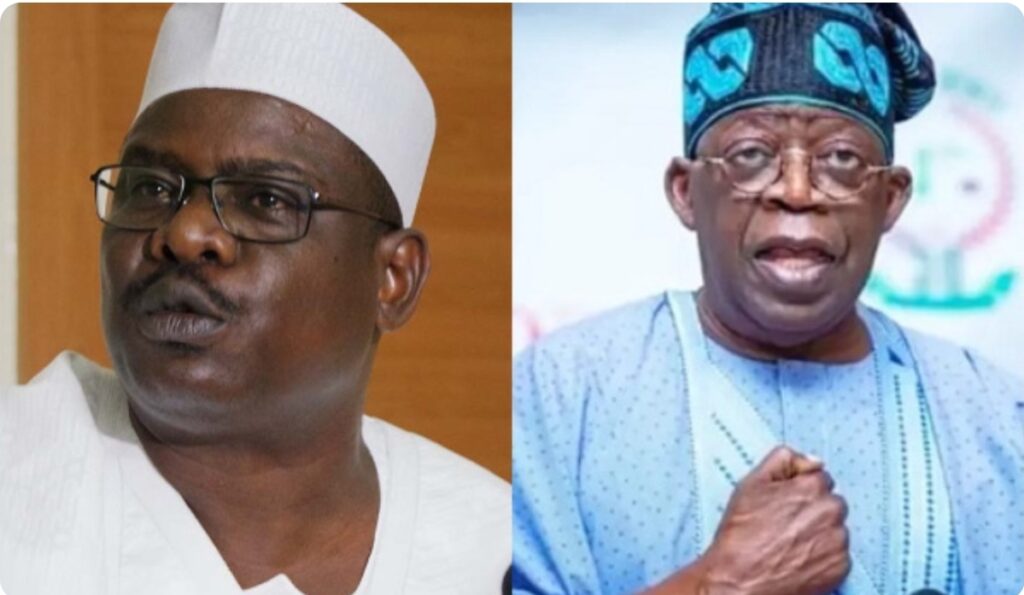
Abuja – Nigeria’s Senate on Wednesday sacked its Chief Whip, Ali Ndume, for criticising President Bola Tinubu’s administration.
Ndume, a member of the ruling party, All Progressives Congress (APC) representing Borno South Senatorial District was replaced with Tahir Monguno (Borno North) by the upper chamber.
Senate President, Godswill Akpabio, announced the decision after many of the senators supported it during the plenary.
The decision followed a letter from Abdullahi Ganduje, the national chairman of the APC party, and Bashir Ajibola, the party’s secretary, which the senate president read during the plenary.
In the letter, the APC leaders recommended that the Senate relieve Mr Ndume of his position because of his “unguarded utterances” that are “against the federal government.”
The APC leaders described Mr Ndume as “someone who is bent on dividing the country” and as someone who is not putting the country in a better position in the international community.
The party subsequently recommended that Mr Ndume’s position in the Senate should be taken over by Mr Monguno.
After reading the letter, the senate president put it to vote and the senators voted overwhelmingly in support of it.
Mr Akpabio approved the recommendation and directed the Sergeant at Arms to walk Mr Monguno to the seat of the senate whip at the front row.
Last week, Mr Ndume told reporters that President Tinubu has been “caged” in the Presidential Villa and that some forces are preventing well-meaning people from physically discussing the truth with him.
He claimed that the situation did not allow the president to know that many Nigerians are hungry.
Ndume expressed concern over the rising cost of living and food scarcity in the country.
He said in an interview with BBC Hausa that the federal government’s inability to address these issues is a major challenge, adding that some ministers are unable to meet with President Bola Tinubu to discuss the matter.
“The major problem with this government is that its doors are closed, to the extent that even some ministers cannot see the President, not to mention members of the National Assembly, who do not have the opportunity to meet with him and discuss the issues affecting their constituencies,” he had said.
Nigeria is facing its worst economic crisis in decades, with skyrocketing inflation, a national currency in free-fall and millions of people struggling to buy food. Only two years ago Africa’s biggest economy, Nigeria is projected to drop to fourth place this year.
The pain is widespread. Unions strike to protest salaries of around $20 a month. People die in stampedes, desperate for free sacks of rice. Hospitals are overrun with women wracked by spasms from calcium deficiencies.
The crisis is largely believed to be rooted in two major changes implemented by a president elected 14 months ago: the partial removal of fuel subsidies and the floating of the currency, which together have caused major price rises.
A nation of entrepreneurs, Nigeria’s more than 200 million citizens are skilled at managing in tough circumstances, without the services states usually provide. They generate their own electricity and source their own water. They take up arms and defend their communities when the armed forces cannot. They negotiate with armed kidnappers when family members are abducted.
But right now, their resourcefulness is being stretched to the limit.
KOIKI Media bringing the world 🌎 closer to your door step
